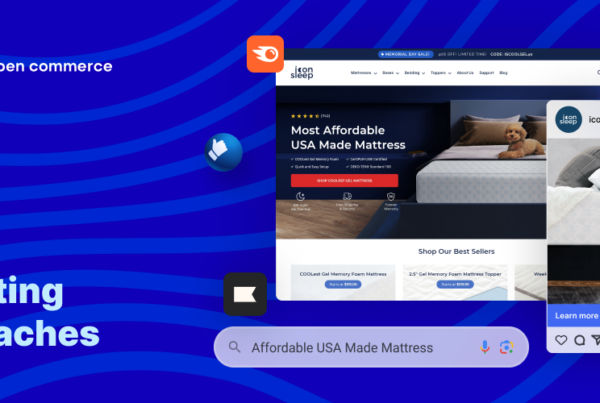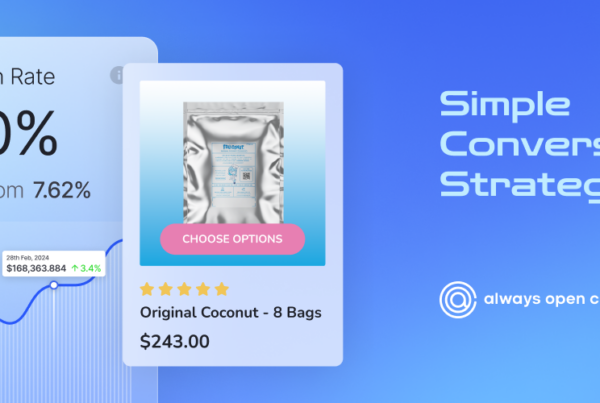Online Marketplaces is the code for entrepreneurs to attain success online. A click can reshape you from a business rookie to an e-commerce paragon, extending your reach far and wide. What should you do to begin? How do you walk yourself through these possibilities?
Work out the advantages of marketplaces. Unveil ideal practices for establishing presence on these platforms, and the four popular business models that lead you to profitability.
Marketplace Advantages
a. Wider Reach: The immense reach they offer. The platforms bring your business the convenience of instantly accessing new markets, then expanding the customer base from charming worldwide audiences.
b. Established Trust: Online marketplaces have already built trust and credibility among consumers. You gain from that status when you sell through these platforms, making it easier to gain a customer’s trust and completing purchases.
c. Increased Visibility: Standing out can be challenging. Listing products on popular marketplaces gives you instant visibility among a vast pool of customers actively searching for goods.
d. Cost-Effective: An independent e-commerce website requires investment in design, development, and marketing efforts. However, Existing marketplaces can reduce costs since these platforms handle most aspects such as hosting and payment processing.
e. Streamlined Operations: Handling inventory levels, order fulfillment, and shipping logistics are some of the tasks involved in effectively running an e-commerce business. This process is simplified with tools and integrations, helping sellers focus on growing their business.
Capitalizing online marketplaces offers values for aspiring e-commerce entrepreneurs. Virtual bazaars pave the way towards success with these benefits!
Molds of Online Marketplaces
These platforms increase your sales as it easily lets you reach a wider audience. Online marketplaces are distinct, and choosing one depends on your niche and target audience.
General Marketplace
General marketplaces, like Amazon or eBay, permit you to sell almost any product. These platforms not only get you millions of visitors daily, but also boosts your products with its marketing tools.
Niche Marketplace
It concentrates on specialized market categories such as fashion or electronics. They appeal to buyers looking for specific products.
Vertical Marketplace
Vertical marketplaces cater to particular industries or professions. Houzz is one example for home improvement and design professionals.
Peer-to-Peer
Etsy and Airbnb are peer-to-peer (P2P) marketplaces that have reformed individual engagement in commerce. It directly links buyers with sellers, these platforms are unique spaces for exhibiting handmade crafts or homeowners to rent out their properties.
Each type of online marketplace is labeled with unique perks and considerations you need to follow to sell your products. Choose and study the platform that aligns with your business goals and target audience.
Online Marketplace Building Practices
There are building practices you should regard to help you captivate more customers.
Optimizing your product listings is crucial. Use relevant keywords in your titles and descriptions to improve search visibility. Having high-quality images and detailed product information will improve customer experience.
Another important practice is managing your inventory. Regularly update stock levels and ensure accurate product availability information on your marketplace store. This will prevent disappointment for customers if an item they want is out of stock.
Excellent customer service continues the motion to build better trust. Promptly replying to inquiries and addressing issues or concerns during the purchasing process increases the customer’s confidence in your brand.
Pricing attracts customers on online marketplaces. Conduct research on competitor prices and offer competitive rates without compromising quality.
Marketing through various channels can significantly increase visibility and drive traffic. Harness social media platforms, email marketing campaigns, influencer collaborations, and paid advertising strategies to reach a wider audience.
Four Business Models
Understanding the various business models is cardinal. These models can help determine how you operate within the marketplace and ultimately impact your success.
Business-to-Business
B2B – In this model, you offer your product or service to other businesses who avail. This requires a complex sales process as you identify potential buyers and then negotiate sale pricing and terms.
Business-to-Consumer
B2C – You sell directly to consumers with no middleman on the marketplace. This is one effective way to reach a large audience, expanding your customer base.
Consumer-to-Business
C2B – Customers offer services or products directly to businesses in exchange for payment. This model requires a good comprehension of customer behavior and how to target them.
Consumer-to-Consumer
C2C – Customers buy and sell products or services directly to each other without any intermediary. This model requires effective marketing and customer service in order to keep customers satisfied.
These models have advantages and challenges. By carefully considering these options when building your e-commerce business using online marketplaces.
Developing an E-Commerce Website
Owning a well-designed and user-friendly website shows customers an accessible catalog. Your website serves as the digital storefront for your online marketplace, so make a strong first impression.
Opt for the platform that synchronizes with your goals and audience, such as Shopify, WooCommerce, Magento, and BigCommerce. Each platform has features you study and compare before deciding where to set up your business.
Focus on creating an attractive and intuitive website design. This includes choosing relevant color schemes and fonts that align with your brand identity. Ensure that your site is mobile responsive since more people are accessing websites through their smartphones.
In terms of functionality, ensure your website has easy navigation for customers to quickly find products. Implement search filters so users can refine their searches based on specific criteria like price range or product category.
Integrate secure payment gateways to ensure safe transactions for customers. This will help build trust with your audience, encouraging repeat purchases.
Optimize your website for search engines by incorporating keywords related to Malouf, e-commerce, and marketplaces throughout your content. This will improve visibility in search results, therefore drive organic traffic to your site.
Building a business website demands careful planning and attention to detail. Continuously optimizing your site based on customer feedback and market trends will lead you towards building a successful online marketplace!
Capitalizing on online marketplace advantages, understanding types, following best practices, utilizing business models, and developing an independent e-commerce website, can lead you to a thriving e-commerce business and reach new heights of success. So, get ready to embrace the world of online marketplaces and take your business from zero to hero!












